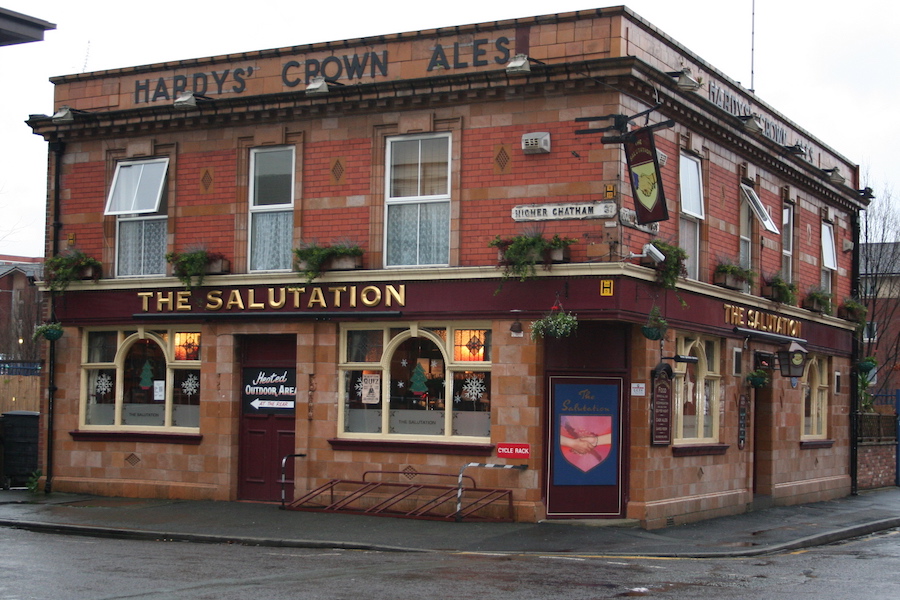What does Friedrich Engels have to do with Manchester?
- Written by Emily Oldfield
- Last updated 1 year ago
- Cornerstone, History
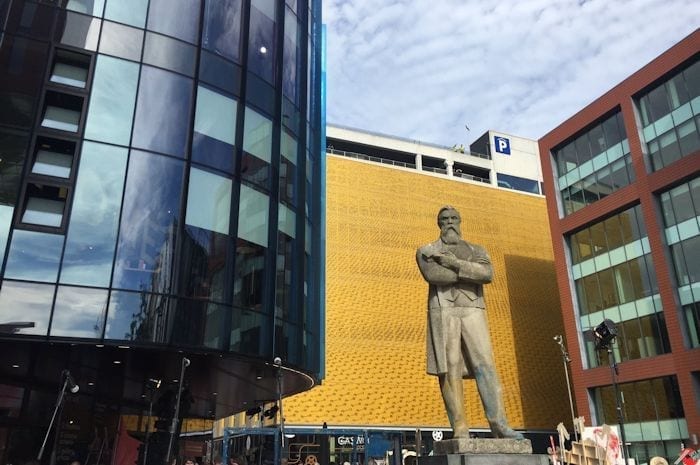
A statue of Friedrich Engels is installed at Tony Wilson Place, First Street in the summer of 2017.
The entrepreneur, philosopher and social critic lived in the “shock city” Manchester for over 20 years.
Born in Germany in 1820, at the age of 22 he was sent by his parents to Manchester to work in the office of Victoria Mill in Weaste, part of the family firm – an experience they hoped would rid him of his liberal views.
It didn’t work. Here he met Mary Burns, a radical young woman who helped inform his views.
It was through Burns that Engels got to know the poorer neighbourhoods of Manchester and Salford, including places like Angel Meadow, recording the appalling conditions in which people were living in The Condition of the Working Class in England.
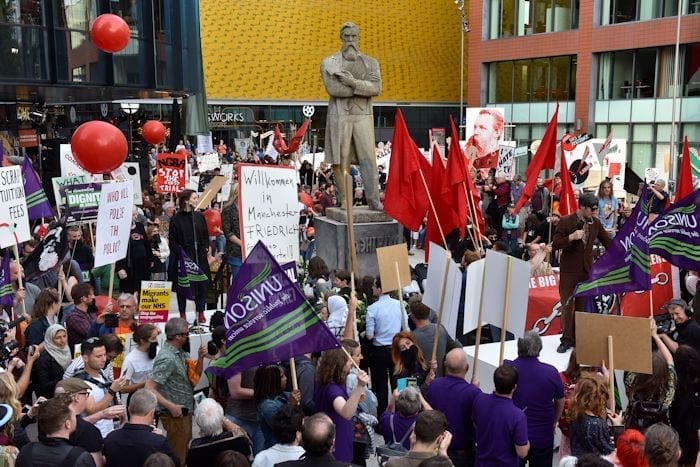
Engels travelled to and from Manchester for over 20 years, with Karl Marx coming to visit him a number of times. They stayed at addresses near Strangeways and Moss Side and worked together in Chetham’s Library.
The statue was installed at First Street in recognition of the two decades the German philosopher, writer, and radical thinker spent in Manchester and Salford working for his wealthy mill-owning father. He documented the appalling conditions in which many people lived in The Condition of the Working Class in England.
First constructed in the 1970s, the statue was originally installed in a village in Ukrainian SSR. In 2015 Ukraine passed a series of laws that outlawed the public display of Soviet symbols, and the statue was consequently removed from its original position and discarded in a field, having been cut in half at the waist
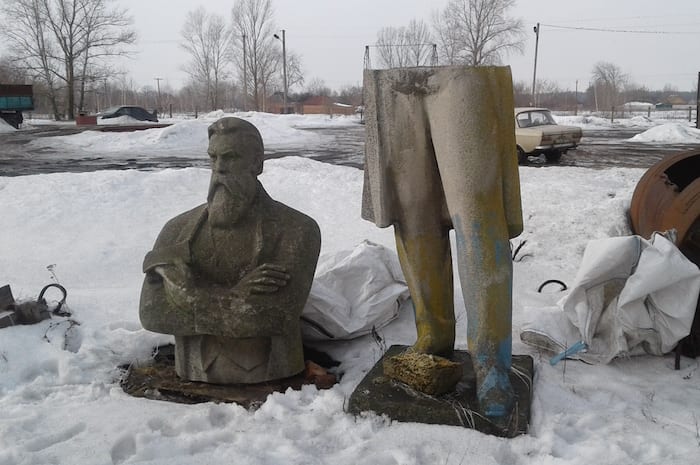
The most horrible spot lies..immediately south west of Oxford Road and is known as Little Ireland..The cottages are old, dirty and of the smallest sort, the streets uneven, fallen into ruts and in part without drains or pavement;masses of refuse, offal and sickening filth lie among standing pools in all directions; the atmosphere is poisoned by the effluvia from these, and laden and darkened by the smoke of a dozen tall factory chimneys. A horde of ragged women and children swarm about here as filthy as the swine that thrive upon the garbage heaps and in the puddles….. The race that lives in these ruinous cottages, behind broken windows, mended with oilskin, sprung doors and rotten doorposts or in dark wet cellars in measureless filth and stench ..must really have reached the lowest stage of humanity.
Things have changed a bit in this part of Manchester since then.
Find out more about Engels’ life in Manchester and Salford at the Working Class Movement Library.
- This article was last updated 1 year ago.
- It was first published on 14 July 2017 and is subject to be updated from time to time. Please refresh or return to see the latest version.
Did we miss something? Let us know: press@ilovemanchester.com
Want to be the first to receive all the latest news stories, what’s on and events from the heart of Manchester? Sign up here.
Manchester is a successful city, but many people suffer. I Love Manchester helps raise awareness and funds to help improve the lives and prospects of people across Greater Manchester – and we can’t do it without your help. So please support us with what you can so we can continue to spread the love. Thank you in advance!
An email you’ll love. Subscribe to our newsletter to get the latest news stories delivered direct to your inbox.
Got a story worth sharing?
What’s the story? We are all ears when it comes to positive news and inspiring stories. You can send story ideas to press@ilovemanchester.com
While we can’t guarantee to publish everything, we will always consider any enquiry or idea that promotes:
- Independent new openings
- Human interest
- Not-for-profit organisations
- Community Interest Companies (CiCs) and projects
- Charities and charitable initiatives
- Affordability and offers saving people over 20%
For anything else, don’t hesitate to get in touch with us about advertorials (from £350+VAT) and advertising opportunities: advertise@ilovemanchester.com
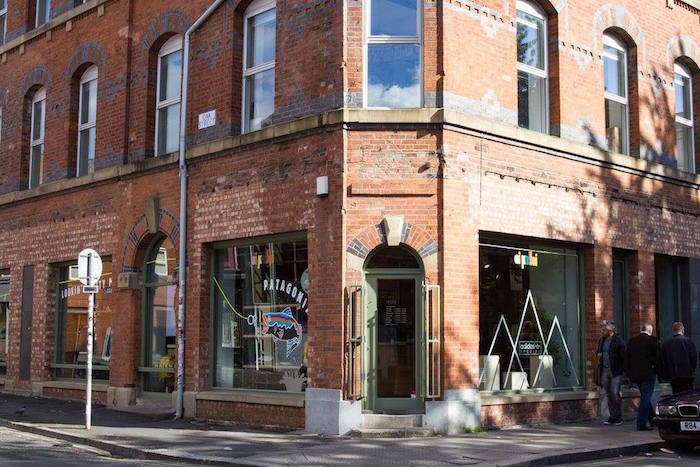
Iconic Northern Quarter menswear store makes a comeback with new styles and big ambitions
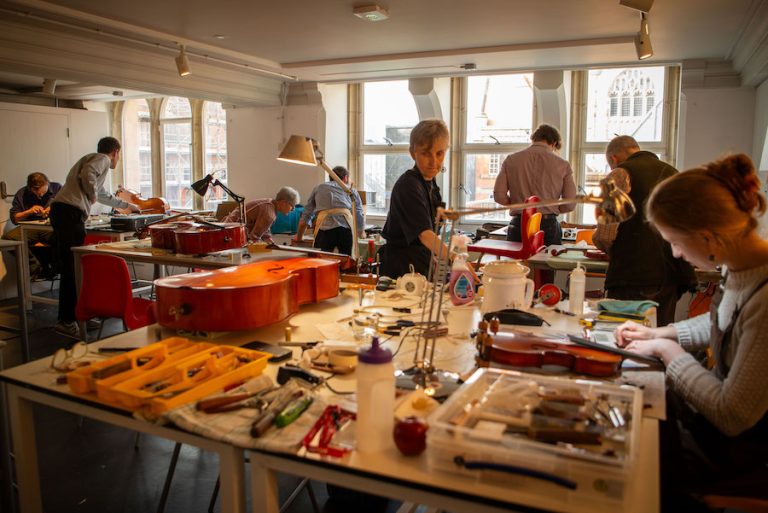
The charity celebrating ten years of making music accessible for all

Review: The House Party at HOME is ‘a bold exploration of modern class divides’

Ukrainian artist studying in Manchester shares inspiring message about living life to the full
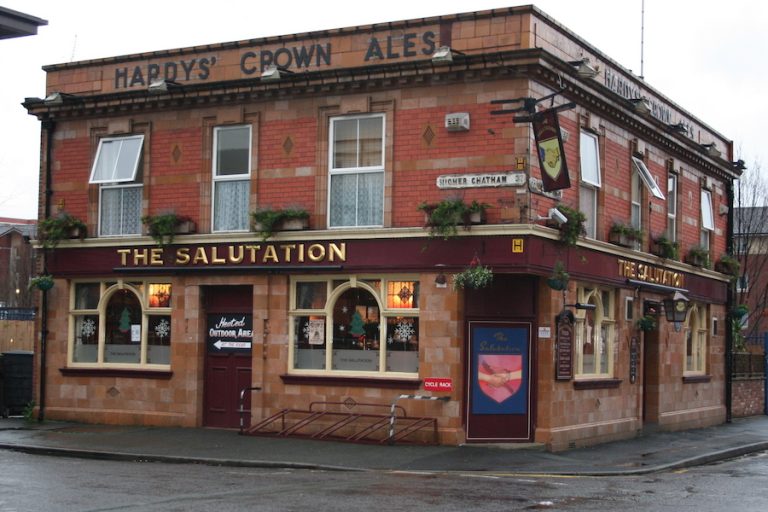
How The Salutation became a cornerstone of Manchester’s story











